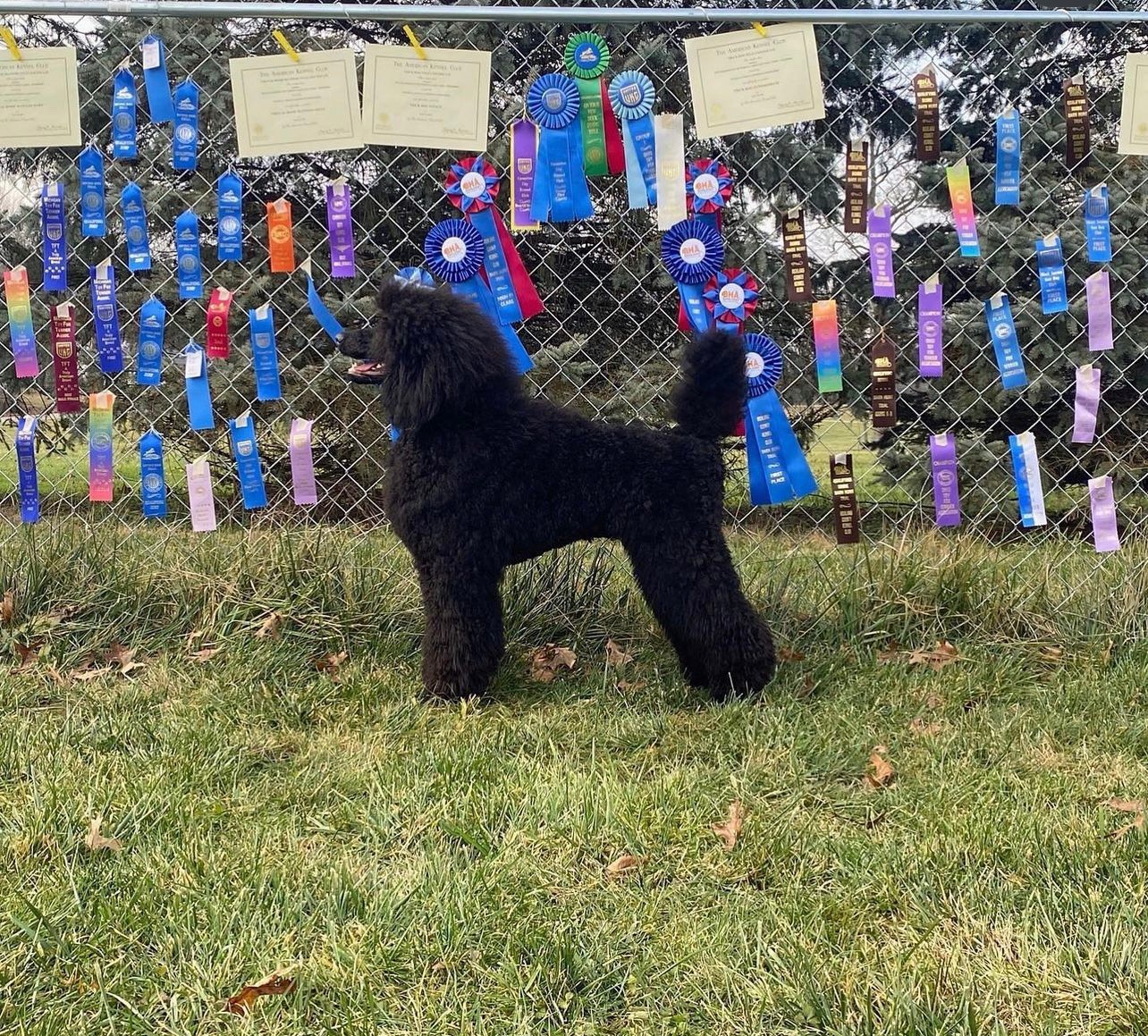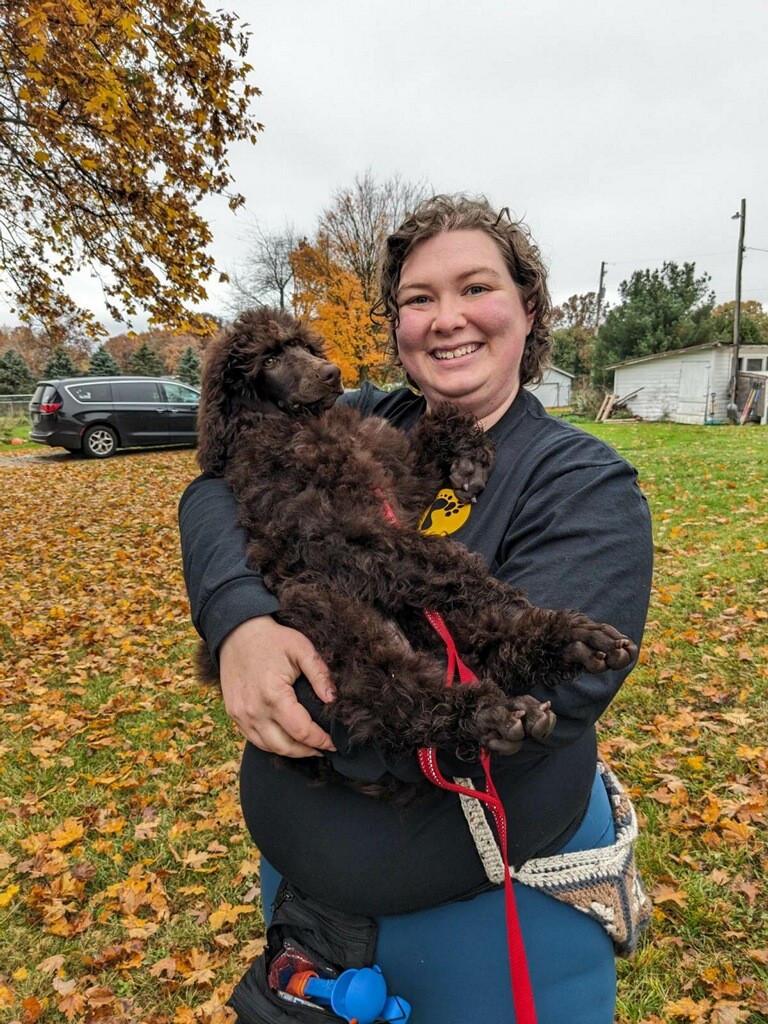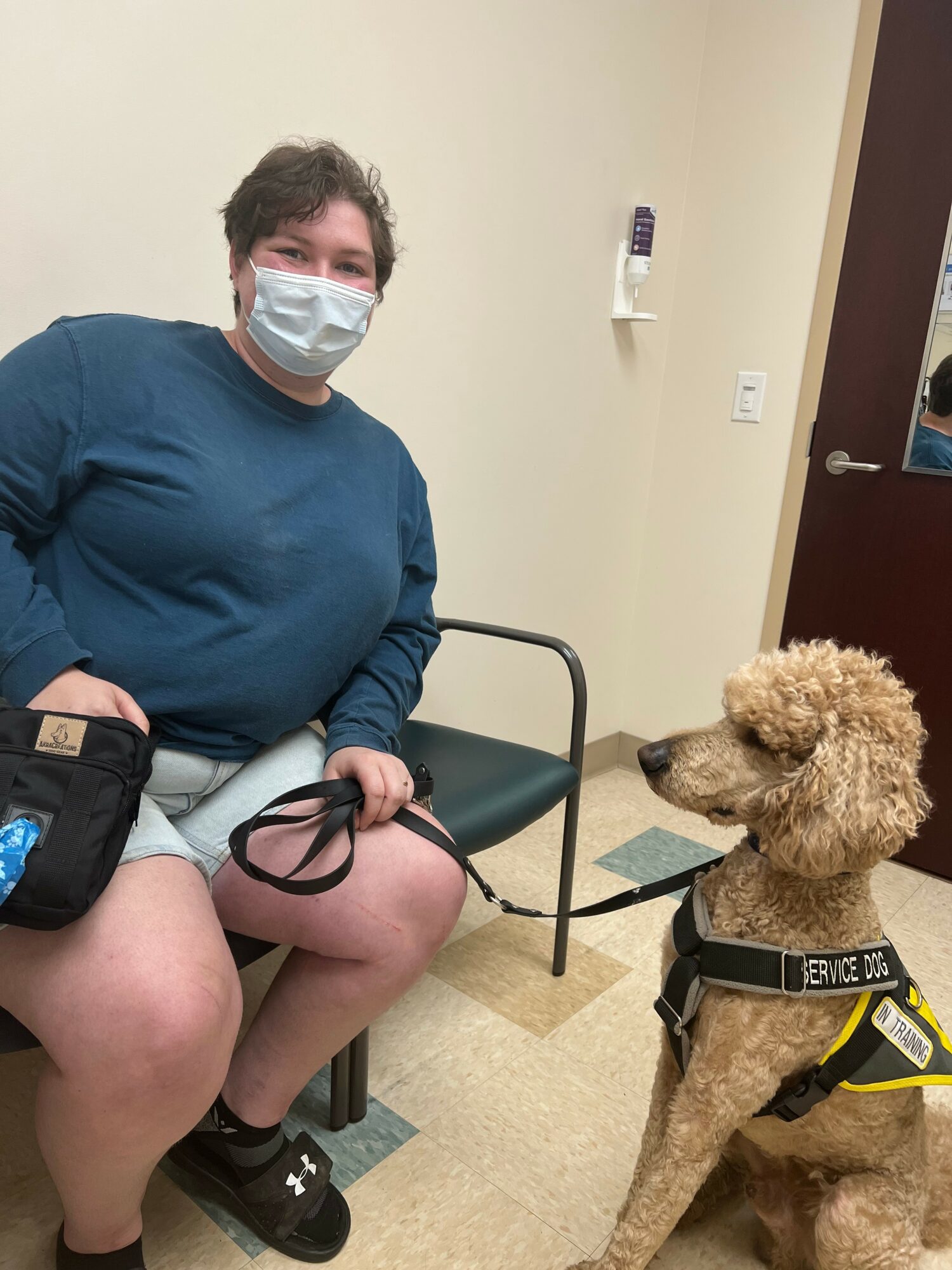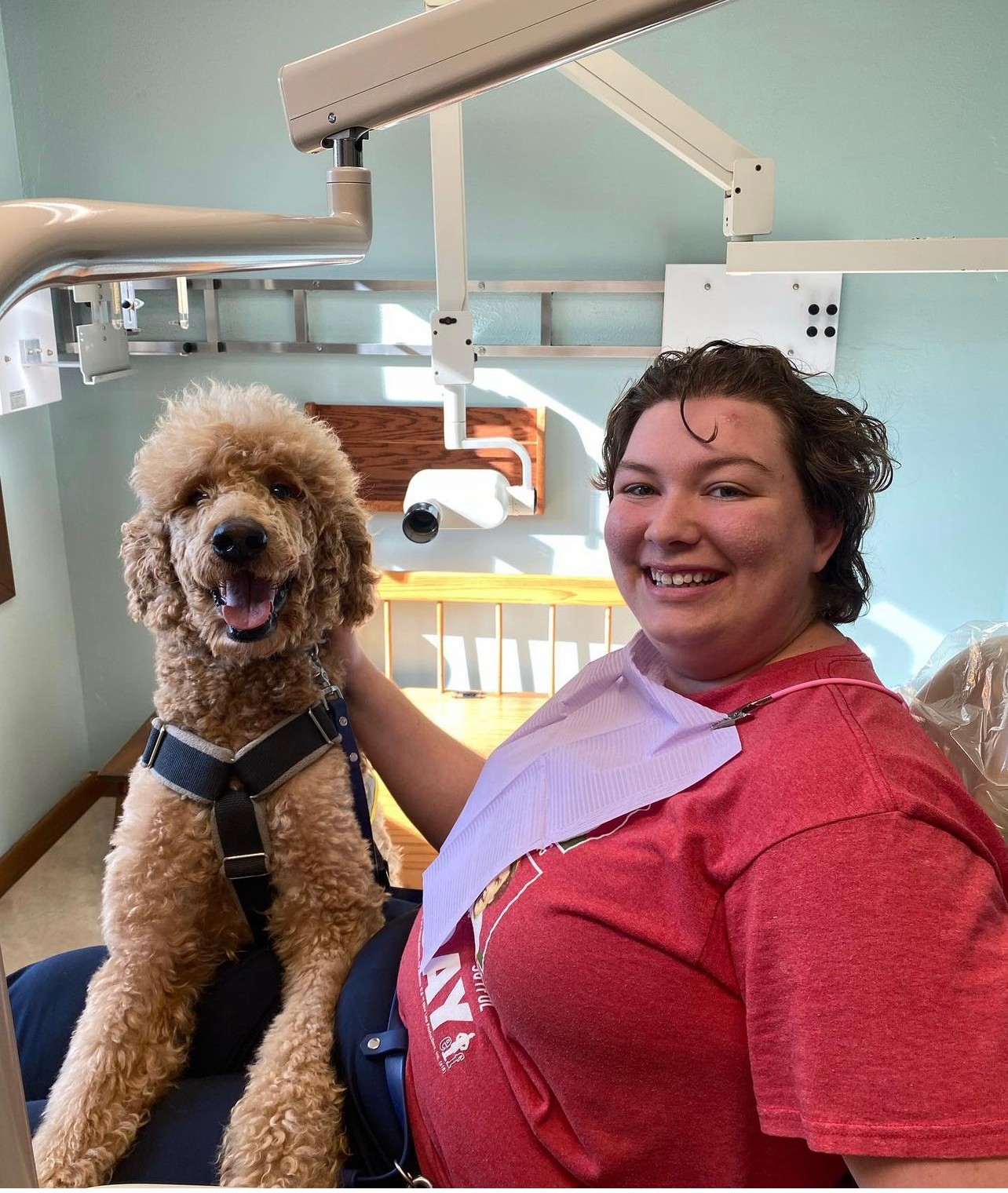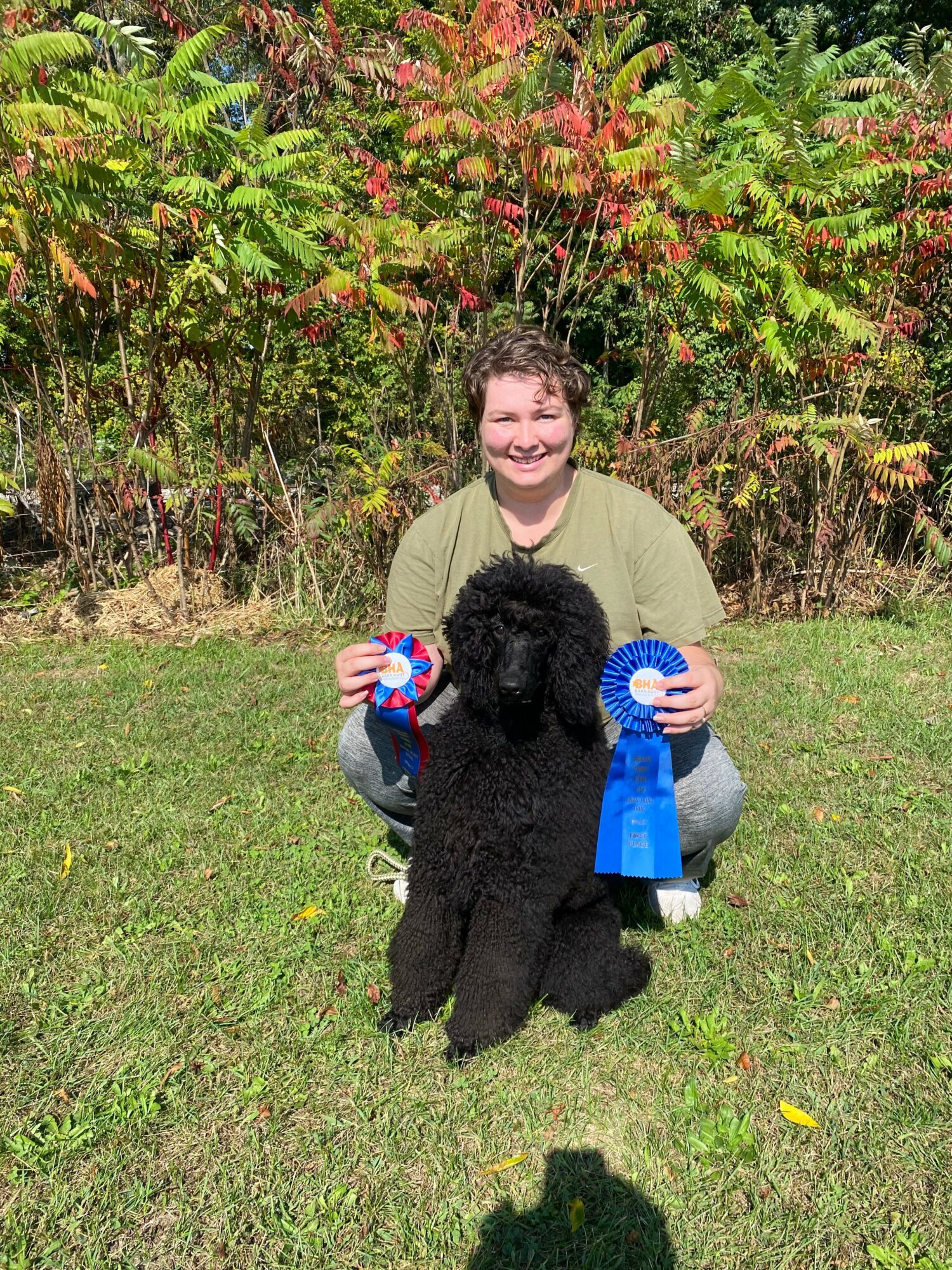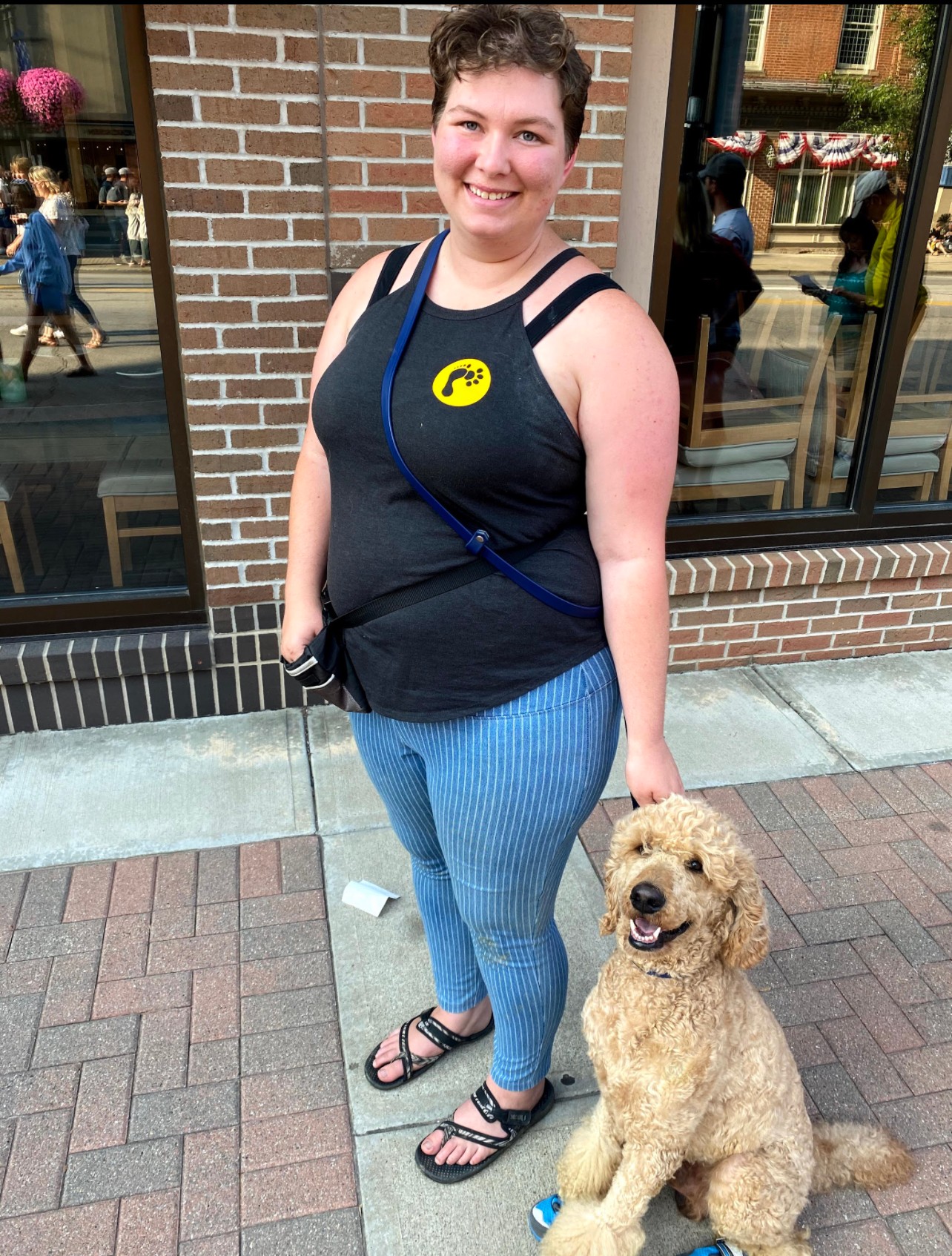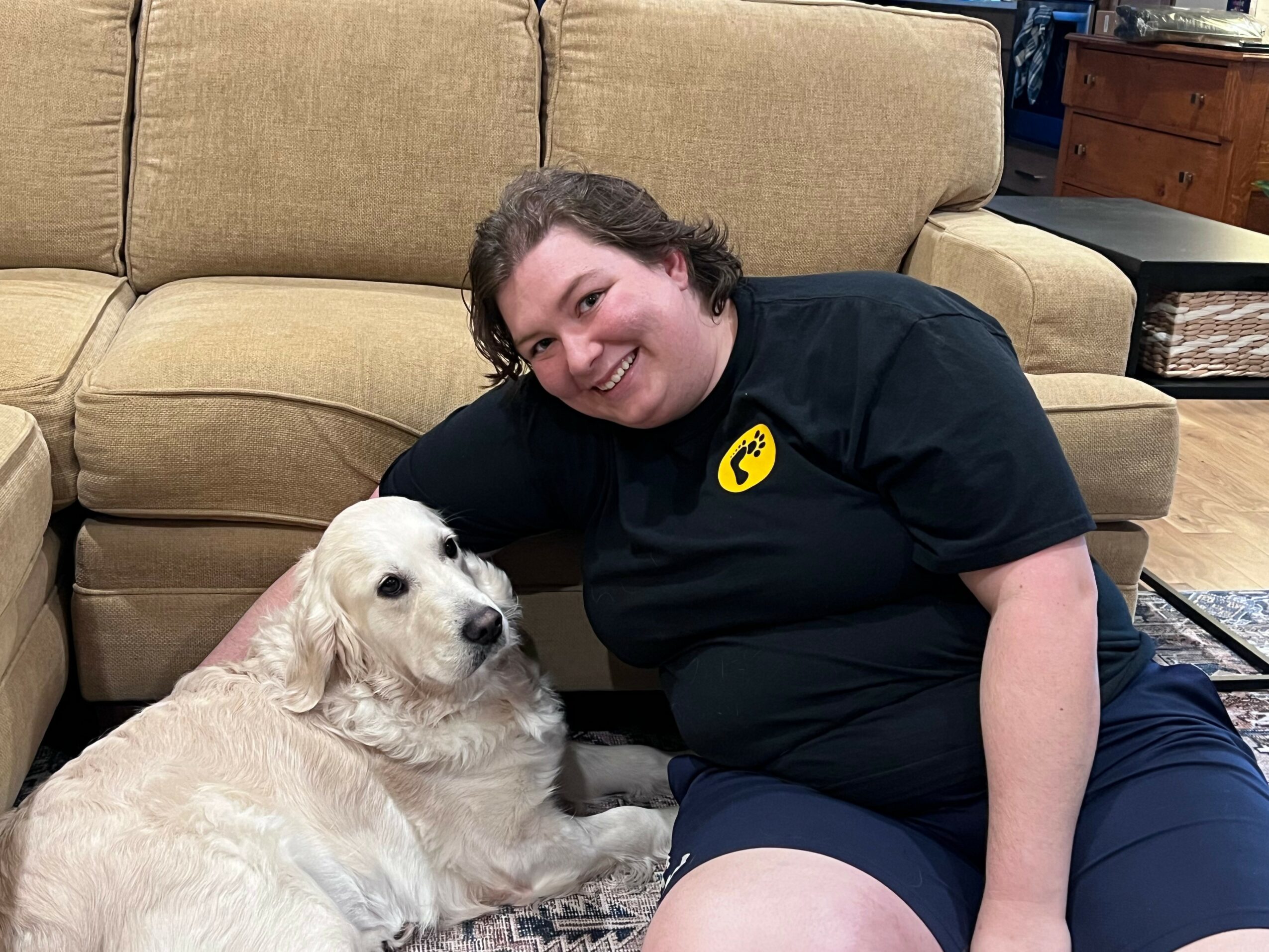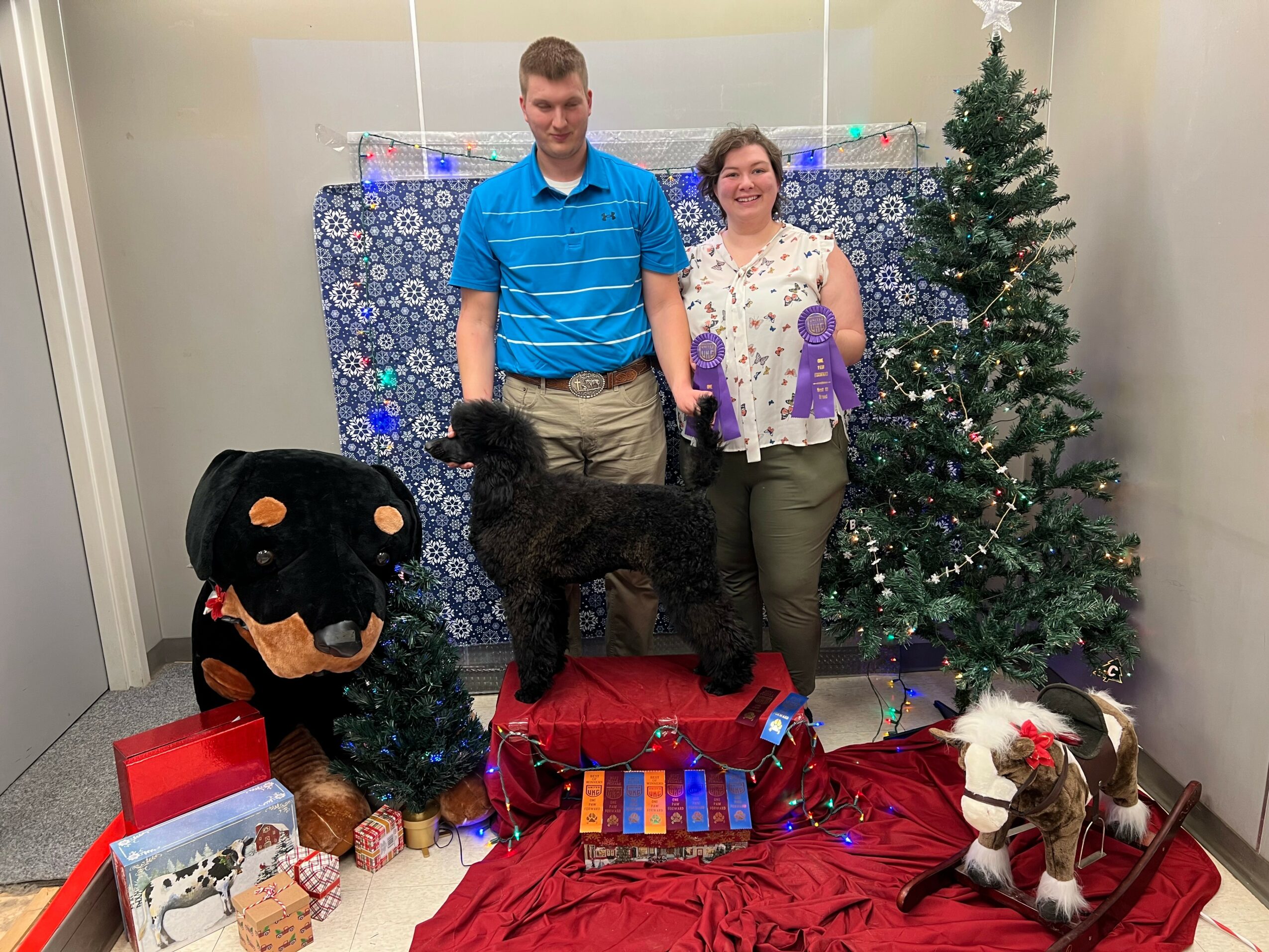

Today we’d like to introduce you to Rebekah Undersander.
Hi Rebekah, we’d love for you to start by introducing yourself.
In 2015, my life was that of a typical 18-year-old. I was in college studying biochemistry and playing softball. However, things quickly began to crumble when I started experiencing dislocations almost weekly, mostly in my legs. I didn’t recognize myself or my life anymore. In less than a year, I went from being on top of the world to fighting to do basic functions every day. After being diagnosed with Ehlers-Danlos Syndrome (EDS), Fibromyalgia, and Post-Orthostatic Tachycardia Syndrome (POTS), I found myself reaching for anything that could give me even just a portion of my life back.
So, I reached for something that always gave me sanity and strength throughout my life: animals. I began researching service dogs, and as I did, I grew hopeful. Suddenly, I could envision myself doing simple things without fear again, like buying groceries. But my hope quickly faded when I saw the high price tag and long waitlist.
On average, a fully trained service dog costs anywhere from $15,000 to $50,000, with an average wait time of 1 to 2 years before the dog comes home. For an individual with a disability, this cost, on top of mounting medical bills, makes owning a service dog unattainable. But I was desperate for help, and I was determined, so I adopted a dog and trained her on my own.
Training Zoey was difficult, but after about a year, Zoey started helping me get my life back in countless ways. She was soon able to alert me to upcoming syncope spells or fainting caused by a drop in blood flow to my brain. Her alerts allowed me to prevent these spells entirely, or if I couldn’t, she applied pressure therapy to shorten them.
After successfully training my own service dog, I began helping friends and family, including my husband, train theirs. For 2 years, this was how I helped others like me until I learned about a business competition at my college. I saw this as an opportunity to not only expand and formalize my services, but also to establish a career that could help even more people with disabilities. The CDC estimates that 61 million, or 1 in 5 adults, lives with a disability in the U.S. This represents a significant need.
Because of these individuals, I left the comfort of my biochemistry lab and dove into the unfamiliar world of entrepreneurship. I entered the business competition and won funding to start Providing Pawsable. My goal was, and still is, to make service dogs more affordable and accessible to those who need them most.
I’m sure it wasn’t obstacle-free, but would you say the journey has been fairly smooth so far?
I shared some in the previous question as well.
This company was founded on the struggles I experience after being diagnosed with multiple disabilities/chronic illnesses as a young adult. While in college, finishing my degree, and starting this company, I had four different leg surgeries. To this day, I have had 6 leg surgeries and see multiple specialists for my illnesses. Chronic pain and fatigue are an everyday battle for me, but they are for my service dog clients as well. I truly believe that my disability and understanding of these concepts makes me a better service dog trainer.
Owning a small business, especially with disabilities, is incredibly difficult. I let all of my clients, service dog and pet, know that my disabilities may cause schedule changes. Unfortunately, I can wake up with dislocations or have days where my POTS is not controlled. My clients have been more than happy to accommodate this. I also build my schedule in a way that allows for recovery in hopes that I can do this for many years to come.
Another difficulty was seeing my clients putting in the effort training-wise and their dog not succeeding because of genetics, health, or temperament. It is heart breaking to see years of work fail and individuals who need help not able to access it despite their best efforts. This difficulty is what motivated me to begin my prospect-finding service as well as my breeding program. I want to reduce the high failure rate that currently exists for service dogs in training.
Appreciate you sharing that. What should we know about Providing Pawsable?
At the core of Providing Pawsable is our training program. We train two types of service dogs: medical alert and psychiatric. Medical alert dogs can sense an oncoming medical crisis by smelling a change in their owner’s hormones, and they can alert their owners before it occurs. My passion for these types of service dogs came from the fact both my husband (type 1 diabetic) and myself (POTS) have benefited greatly from a medical alert service dog. Psychiatric service dogs can lessen symptoms of countless mental health conditions, including post-traumatic stress disorder (PTSD), depression, anxiety, panic attacks, and more. Both the disabled and abled communities struggle with mental illness, and veterans especially are a group in need of support. Shortly after I turned 18, I lost my dad, a veteran, to suicide. In 2019, there were 6,261 veteran suicide deaths, according to the National Veteran Suicide Prevention Annual Report. While psychiatric service dogs might not be able to prevent all suicide deaths, these dogs are known to mitigate symptoms of PTSD in veterans. So far, we’ve helped clients with PTSD, autism, anxiety, bipolar disorder, and borderline personality disorder.
To make obtaining a service dog more accessible, we create custom, individualized training plans for each of our clients. Our clients don’t have to wait 1-2 years to benefit from a fully trained service dog. Instead, we work with them one-on-one from day one (when they first tell us they’re interested in a service dog), and we empower them throughout the entire process. When they begin searching for a prospect (puppy or adolescent dog intended for service work), we help them find one that suits their personality, needs, and lifestyle. Then, we help train basic skills like obedience and potty training.
As we get to specific types of task and scent training, we guide our clients along the way, and we equip them with skills to train and practice on their own with their service dogs. This allows our clients to grow and learn with their dog and to integrate the dog into their daily lives with medical and/or psychiatric conditions.
We work with clients in-person virtually, and we also offer board and train stays, in which the client leaves their dog with us for about four weeks to train especially difficult tasks. So far, we’ve had great success, especially with our virtual programs, which include one-on-one Skype sessions with clients, finding them prospects, and analyzing training videos. We continue to expand these services as best we can to meet demand and support more clients nationally.
Service dog prospects are like a “gamble,” and finding consistently reliable prospects has been a difficult obstacle to overcome. Training service dogs is complicated enough, and there are several factors that occur during training that can cause a dog to fail out, but unstable and unhealthy dogs make the process even more difficult to get right. The AKC Canine Health Foundation estimates that 65-70% of service dogs fail out of training, failure which is often caused by temperamental or health issues or ineffective training.
To increase the likelihood that our clients’ gamble will pay off, we are implementing an ethical breeding program which will provide them with reputable, healthy, and stable prospects. With puppies from health-tested and titled parents, and reared with structured protocols geared toward success, we can give our clients a start they never could have imagined before. Paired with our already existing training protocols and approaches specialized for owner trainers, our hope is to significantly decrease the failure rate of service dogs within our company.
We’ve already gotten started as we’ve found, tested, and titled our foundation female: Quil. Finding and training a female dog who could “do it all” was challenging at first, especially since we had no experience showing or titling dogs in sports. But my husband and I took several courses to prepare, and I was blessed to have a mentor who trusted me with a co-owned female dog.
Already, Quil has had great success in the show ring, becoming a champion at only nine and a half months old, and we have also trialed Quil in a variety of sports. So far, she’s earned 25 different titles and multiple other accomplishments and honors including: number one nationally for the senior distance jump division (2022), number one standard poodle in the nation for novice barn hunt (2021), number two dog of any breed in Ohio for novice barn hunt (2021). Also, she was one of only 16 standard poodles so far to earn the Versatility Masters title, which she earned at only 16.5 months old.
We are expecting our first litter in 2024 from Quil, who is health-tested beyond recommendations and has proven herself not only in service work but also a variety of other sports. I have completed 25 hours of courses and earned every available certificate from Good Dog, which has Dr. Gayle Watkins’ breeding education program AviDog. Some of my certifications include Pregnancy & Whelping, Litter Management Months 1 and 2, Caring for Newborn Puppies, Caring for Your Dam After Whelping, and Savvy Socialization. I have also attended multiple conferences for canine health and breeding. Additionally, I am the Vice President for Versatility in Poodles and a member of the Nominating Committee and Education Committee for the United Poodle Association. These roles have allowed me to create a network of other experienced breeders within the poodle community.
We all have a different way of looking at and defining success. How do you define success?
Success is making a difference through improving the quality of life of my clients. By giving individuals their independence back through a partnership with a service dog, I helped them train. Empowering them to take back control of their lives and not allow chronic illnesses or disabilities win. Increasing the success rate of owner-trained service dogs through ethical breeding programs that prioritize the care of the dogs as much as the people they will be trained for.
Contact Info:
- Website: www.providingpawsable.com
- Facebook: https://www.facebook.com/pawsabletraining/
